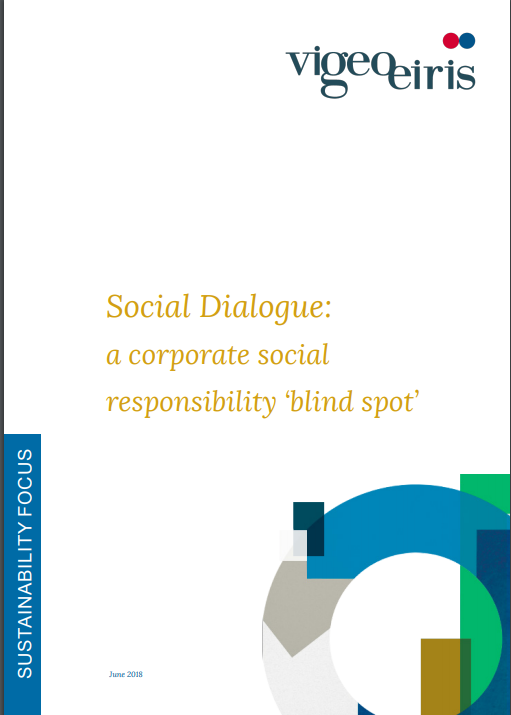
Key takeaways from the report
- Even though social dialogue is a fundamental right enshrined and promoted by international standards, it still appears as a corporate social responsibility ‘blind spot’.
This is due to a global lack of company commitment on this issue, as revealed by the overall average score of 25/100 achieved by 2,400 companies under review. - Only a small minority of companies worldwide (4%) issued a formalised commitment to promote labour relations in partnership with employee representatives – the same rate
as during the 2014-2015 period. Conversely, 62% of companies make no commitment to foster social dialogue - Companies headquartered in Europe perform slightly better than their peers on social dialogue, with an average score of 38/100, compared to 17/100 for North American
companies, 19/100 for their peers located in Asia Pacific, and 26/100 for companies listed in Emerging Markets. - During the period 2016-2017, almost half of companies (48%) reported on issues covered by collective bargaining: 72% of companies listed in Europe reported on this, compared
to 39% North American companies, 28% of Asian companies and 14% of companies located in the Emerging Markets. - A minority of companies have employee representatives at Board level: this is the case for 5% of companies in Europe, despite disparities among countries. Outside Europe,
this practice remains marginal. - Given technological developments such as digitalisation and artificial intelligence, and emerging risks such as nanotechnologies, there is an urgent need to introduce emerging
challenges in collective bargaining, such as the right to disconnection, and change of working conditions due to automation.
For the original source, please click here.